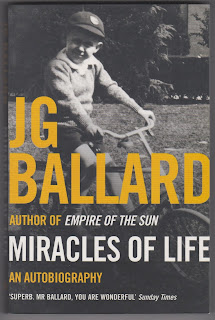From the shop-books.ca blog
Those who know me know I come from a travel background and I truly miss working in the industry and the exposure to different cultures, people, and experiences that travel can give. Travel is a force for good in this world as my old company executives’ used to say and I firmly believe it.
However, since many of us can’t travel now due to the pandemic and many of us can’t travel at all, I thought I’d put together a personal list of the top 7 travel books to read while you can’t travel.
In no particular order, with a slight literary bent, and as usual I actually have read these:
1: The Odyssey by Homer
Yes, I realize that forcing high school reading on you might backfire but this classic tale of Odysseus trying to get back to his love after the Trojan War gives us wine dark seas, magical Mediterranean islands, many strange cultures and customs, and a lot of eating of wine and cheese. Grab yourself some and set in.
2: The Happy Isles of Oceania by Paul Theroux
I could have picked almost any of Theroux’s travel books but this one speaks to me for the word “happy” in the title alone. Theroux is a fascinating narrator, both for his keen observations and his penetrating, dark insights when he disapproves of the events he is watching. Grabbing a collapsible kayak and paddling to seldom- visited shores around the Pacific islands, he steps into a Gaugin painting, paddles in the wake of the great explorers, and recalls the tales of Robert Louis Stevenson.
3: An Unexpected Light: Travels in Afghanistan by Jason Elliot
A deeply personal book about the experience of travel and how it can change someone, especially if one goes with preconceived notions but finds a way to let go. Written about Elliot’s two journeys to Afghanistan 10 years apart (during the Russians adventure and then again as the Russians departed), two quotes suffice to hopefully inspire you on your next travels whenever and wherever they may be: “…journeys are sparked from small and unlikely things…” and “…trust in the spirit of the journey…”
4: Notes from a Small Island by Bill Bryson
From the highly personal quest of Elliot to another type of quest, mainly the exploration and understanding of familiar yet strange things; Bill Bryson, an American living in England, takes us around the country to visit every nook and cranny to uncover the strangely familiar and hilarious things, customs, and “language that separates us”. Reading Bryson is like having a beer with a good friend.
5: The Songlines by Bruce Chatwin
Bruce Chatwin adapted a literary form common until the eighteenth century and modernized it: a story of ideas in which two companions, traveling and talking together, explore the hopes and dreams that animate both them and the people they encounter. Ostensibly about the aboriginal peoples of Australia, Chatwin veers off into all kinds of mythic history but also unreliable events. Did this specific event happen in the way Chatwin tells us and does it really matter since we get to the heart anyway.
6: Road Fever by Tim Cahill
With titles like Pass the Butterworms or Hold the Enlightenment, Cahill is simply one of the funniest adventure travel writers around. In Road Fever, Cahill reports on the road trip to end all road trips: a journey that took him from Tierra del Fuego to Prudhoe Bay, Alaska, in a record-breaking twenty three and a half days. Engine trouble in Patagonia, sadistic troopers in Peru, document hell in Colombia, and all you ever wanted to know about the effects of a diet of beef jerky and milk shakes.
7: The Art of Travel by Alain de Botton
Alain de Botton tells one story of a trip to Amsterdam and writes,” I stopped by a red front door and felt an intense longing to spend the rest of my life there.” Why do we travel? Instead of being a guide to what to do when we get somewhere, this book tries to explain why we really went in the first place. De Botton explores thoughts on anticipation, curiosity, beauty, and habit and suggests how we might be happier in our journeys.
Further reading and also highly recommended (some via my Amazon Associates link):
Down and Delirious in Mexico City by Daniel Hernandez - Hernandez travels to Mexico City, searching for his cultural roots and encountering a city both chaotic and intoxicating, both underdeveloped and hypermodern. Medium Raw: A Bloody Valentine to the World of Food and the People Who Cook by Anthony Bourdain – RIP
Lands of Lost Borders: A Journey on the Silk Road by Kate Harris – A year spent cycling the Silk Road.
A Woman Alone: Travel Tales From Around the Globe edited by Faith Conlon, Ingrid Emerick and Christina Henry de Tessan – Relatable stories from solo female travelers.
On the Road by Jack Kerouac – The book that launched a lot of thumbs. Vagabonding by Rolf Potts – The process behind taking time off and exploring the world.
A Year in Provence by Peter Mayle – This book launched a sub-genre of travel memoirs.























